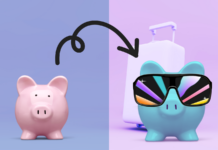NOTICE: This post references card features that have changed, expired, or are not currently available
In the March 2015 post “Chasing Ultimate Rewards,” I detailed plans to earn approximately 210,000 Ultimate Rewards points per year without paying credit card annual fees. Since then, things have changed. Chase’s new, tougher, application approval process has become well documented. According to many reports, Chase no longer approves applications for cards that earn Ultimate Rewards points if the applicant has applied for many other cards recently. For details, please see Doctor of Credit’s post: Chase Credit Card Churning – Living with the New Reality. Chuck, at Doctor of Credit, summarizes his post as follows:
- 5 or more new cards can trigger denial (occasionally even less can be problematic)
- Even non-Chase cards count to this number
- AU cards do count toward the 5-card limit, though you may be able to convince a rep not to count them
- Reps seem to have the power to approve you with more than five, but that usually doesn’t happen
- Shifting credit lines doesn’t help
- Co-branded cards are mostly unaffected
- Business cards (INK) may be slightly easier to get than personal cards
- Business cards possibly won’t count toward the 5-card max
To be clear, the above summary is just a rough guideline. Chase doesn’t seem to apply hard and fast rules across the board. I’ve heard from plenty of readers who have succeeded in signing up for new Ink or Sapphire Preferred cards recently despite having far more than 5 new cards on their credit reports. Still, I do believe that the trend is towards tougher application reviews and more denials.
So, why does this cause me to rethink my strategy? Let’s review the plan I detailed in my earlier post (see the original post for full details):
- ~50K per year via Ink 5X category bonuses: Spend at least $10,000 per year with Ink card within 5X categories: Office supplies, telecom, cable.
- ~60K per year via Freedom 5X category bonuses: Make use of Chase Freedom’s rotating 5X category bonuses. I assumed that my wife and I would each get two Freedom cards and that we would earn half the possible points from quarterly bonus categories. Max possible per card at 5X = 30,000 points (due to $1500 per quarter limit). With 4 cards, max possible = 120,000 points.
- ~100K per year via signup bonuses: Sign up for Chase Sapphire Preferred and Ink Plus every year. Alternate signups between my wife and I, and schedule so that new signups always takes place at least two years after the previous bonus was earned. By alternating premium cards, we would always have the ability to transfer to loyalty program partners and we would never have to pay an annual fee as long as the first year fee is waived.
Due to Chase being much more strict with new applications than expected, I feel a need to revise my strategy with respect to that last bullet. I no longer believe that its a good idea to alternate premium card signups over and over.
Experience so far
Shortly after writing the “Chasing Ultimate Rewards” post, I tried to put the plans in motion. I successfully downgraded my wife’s Sapphire Preferred card to a Chase Freedom card so that she now has two. This gives her twice as much 5X buying power. Of course, I added myself as an authorized user to each of her cards so that I could help with that 5X spend.
Next, I tried to signup for a new Sapphire Preferred card. I had earned the bonus on my previous Sapphire Preferred card more than three years ago, so I was well within Chase’s rules for qualifying for a new bonus. Specifically, Chase’s rules currently state that two years must have elapsed from the prior bonus:
This new cardmember bonus offer is not available to either (i) current cardmembers of this consumer credit card, or (ii) previous cardmembers of this consumer credit card who received a new cardmember bonus for this consumer credit card within the last 24 months.
I had appied for the Sapphire Preferred card on the same day that I had already applied for the Chase Amtrak card (which is no longer available). The Amtrak card was instantly approved. The Sapphire Preferred application was pending, but when I called Chase’s reconsideration line I learned that the application was denied due to too many recent applications. I asked about moving credit from another card or even cancelling another Chase card, but was told no.
I called a second time, but was then told a slightly different story. This time, the rep did mention having many recent applications, but she also said that I couldn’t get more than one application approved from Chase per month. What? That was new to me. I’ve successfully signed up for multiple Chase cards in one day in the past and I know many others have done so as well. In fact, I’ve heard from quite a few people who have done so recently. So, I asked if this was a new rule. The agent claimed that they apply different rules to different accounts and that my account is limited to one new card per month. She said that I could try again next month. She even offered to approve me for the Sapphire Preferred card if I was willing to give up the new Amtrak card! That was a tough decision, but I decided to keep the Amtrak card for its ability to unlock transfers to Choice Privileges at a fantastic 1 to 3 ratio.
Going forward
I’m still a big fan of Chase’s Ultimate Rewards program. I use my Ultimate Rewards points more often than any other points currency. I regularly transfer points to Hyatt, United, Southwest, and Amtrak. So, its important to me to continue to earn points each year.
I do plan to eventually try again for a new Sapphire Preferred card, but that will most likely be the last one I ever apply for (well… maybe my wife will try again sometime in the future too). Anyway, the point is that I won’t count on doing so repeatedly. My end goal is to keep just one premium Ultimate Rewards card between my wife and I. That way, we’ll have just one $95 annual fee and we’ll retain the ability to transfer points to loyalty programs. The trick will be to move points, as needed, from no fee Freedom or Ink Cash cards to our single premium card so that the points can then be transferred to loyalty programs such as Hyatt, Amtrak, etc. (As of 12/8/15 Ultimate Rewards can no longer be transferred to Amtrak.)
Which premium card? As a general rule, I think that the best combination of Ultimate Rewards cards is:
- Chase Freedom: no annual fee
- Chase Ink Cash: no annual fee
- Chase Sapphire Preferred: $95 annual fee
With this trio of cards, you get access to all Ultimate Rewards category bonuses for $95 per year:
- 5X rotating categories (Freedom)
- 5X office supplies, cellular, landline, and cable; 2X gas and dining (Ink Cash)
- 2X travel and dining (Sapphire Preferred)
You might, though, have another card that offers equal or better travel and dining bonuses. For example, the Citi Prestige card offers 3X for travel (hotels, airlines, and travel agencies) and 2X for dining and entertainment. Even better, the Citi ThankYou Premier card offers 3X for all travel and gas and 2X for dining and entertainment.
I have the Citi Prestige card and will probably signup my wife soon for the Premier card. So, I don’t really care whether we keep a Sapphire Preferred card in our arsenal. Instead, I’ll probably simply keep and pay the annual fee for my current Ink Plus card.
Earning points
Without repeated signup bonuses in the plan, my projected earnings drop from 210,000 per year to 110,000 per year:
- ~50K per year via Ink 5X category bonuses
- ~60K per year via Freedom 5X category bonuses
That might be enough for me. Its hard to say. Fortunately, there’s room to maneuver. With the Ink Plus, its possible to earn up to 250,000 points per year at 5X. And, if I succeed in getting a second Freedom card for myself (my wife already has two), we would have the potential to earn up to 120,000 points per year at 5X with our four Freedom cards. In total, we could potentially earn up to 370,000 points per year. That’s without counting points earned through the Shop with Chase portal, or from using our cards for 1X or 2X spend.
My plan, though, is to stick with the conservative earning rates I laid out previously, and see how it goes. Currently, my wife and I have well over 400,000 points. As long as our earning rate is enough to keep our balance at, or above, 250,000, I’ll be happy with that. If we drop below 250K, I’ll work more aggressively on rebuilding our points balance.





What if I cancelled a card that I applied for a year ago? Would Chase count that in the 5 card limit?
I think so. My understanding is that they are looking at how many you opened, not how many you currently have open.
So if I just did a round of apps and got approved for 5 cards, does that mean that I am going to have to wait 2 years before I can even think about applying for any Chase cards? I have a couple of Chase cards but they are not UR cards, sucks!
I don’t think they’re really THAT strict. My guess (and it is just a guess) is that 6 months might be a long enough wait. And, I would bet that a year would be plenty long enough.
is there any issue moving UR points from a personal freedom card to a ink bold card? Both cards have different usernames online. Both cards are under my name with the same address.
Thanks!
No issues. It can be done.
Thanks for your reply!
[…] now that you know Chase won’t approve you for any new cards? Frequent Miler pointed out the change in his strategy yesterday. Just a few weeks ago he wrote about the optimal way to earn Ultimate Rewards through […]
I think you made one big mistake.
You can earn 250K ultimate rewards per year on office, cable, etc.
And it’s an extra 250K for each eligible category.
I earn around 200K a Month! not a year (I have a few ink cards)
How much do you lose a month MS’ing ?
Obviously everyone values Chase UR points higher than Citi TY points, but if I’ve been using my Chase cards for dining (normally Sapphire, but recently Freedom until I maxed out the 5x bonus on both of my cards), is it really worth switching to a card in a less valuable program just because it might offer 3x on dining?
Currently I use my Sapphire for dining (and most random travel, other than specific purchases I make with co-branded cards for particular airlines/hotels), Ink Cash for Internet/cell/office supplies, Freedom for rotating 5x categories, Amex PRG for gas and groceries, and Amex SPG for all non-bonus spend. Must I calculate the exact value of all my spend in various categories (or estimate the best I can) to see if it makes sense to switch cards, or should I just stick with my current strategy (in addition to MSing for signup bonuses on other cards)?
@Kathryn:
Noting each call appears to be a newer practice, which defeats the old “HUCA” strategy. You’re out of luck on this Freedom deal.
So, I wanted to get in on the Chase Freedom card before the $200 bonus offer is up tomorrow but got an application pending response. Called in to the reconsideration line and was told “too many new accounts opened in the last 2 years”. Tried calling again later in the same day but the previous rep had notated my call and this 2nd rep said the exact same thing. I read that it is suggested to just hang up and keep calling back if you don’t get the response you want but how does this work when they notate your previous phone calls and are like, “Um, why are you calling again? We already told you the answer!” Any advice would be much appreciated, I really want to get the Freedom card but feel like I’ve hit a ceiling with Chase and my suggestion to move credit around is just brushed off. Frustrated 🙁
[…] Chasing Ultimate Rewards: My revised strategy […]
Any chance you’d go with “between my wife and me” or “between me and my wife”?
“Between my wife and I” is grating and incorrect.
“respective cards for those chains pay fat commissions”
Can you explain this in further detail? ie. spell it out, thanks
Interesting choice on the Ink Cash over the Ink Plus. I currently have the old M/C branded Ink Plus and have gotten them to offer me 10,000 bonus points/year with $X spending to offset the annual fee. Not sure if that is the continued route to go as long as they offer the rentention bonus or if it makes sense to switch to the Ink Cash. Does the Ink Cash actually give its rewards in cash payouts or is it in UR points similar to how the Freedom card does it?
I haven’t been offered a worthwhile retention bonus for Ink Plus or Bold for a while, but if you get a good one you might as well stick with it. Yes, Ink Cash earns Ultimate Rewards points just like the Freedom card.
Greg,
How in the devil do you max out the restaurant quarter on multiple cards? You found a place that sells Visa gift cards? (half joke, half serious question)
Even gas stations to me are tough to max out on since most are cash only for the best gift cards.
I didn’t max out the restaurant 5X. As I said in the post, my assumption is that I would do half the possible amount. A big reason for assuming just half is that there are quarters like the restaurant one.
Bed bath and beyond sells $200 VGCs.
Not near me. 🙁 Only iTunes!!!
Great post! Been trying to figure out our next move given the new rules for Chase. Think the Chase Ritz Carlton 140k offer will come back around? Saving 2 Chase slots for that offer for sure!
I wouldn’t bet on the 140K offer coming back. I hope it does, but I’m not optimistic about it.
Questions:
1. Chase Ink Cash is a BUSINESS card, right?
2. Can you even get if if you don’t own a business?
3. Lastly, I would be concerned about the protections (or lack thereof) of using a business card.
1. Yes. All Ink cards are business cards
2. No, you can’t get one if you don’t own a business (I have a few businesses: this blog; rental property; buy/sell stuff on Amazon)
3. Don’t use it in situations where you’re worried about that.
Makes sense.
people are approved for business cards without a business, but it is entirely up to you whether you want to try. If you google how to fill out an application for a business credit card, you will get the steps.
I figured as much. Guess I’m just more concerned about lying and been caught.